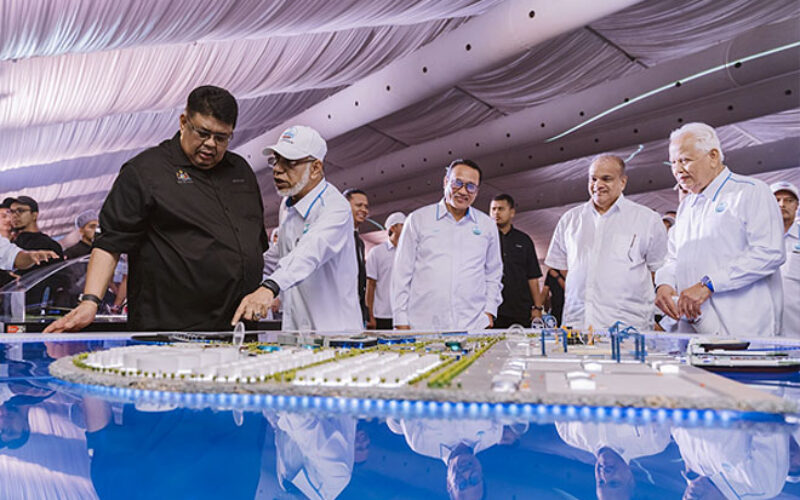Malaysian port commences $3 billion facility construction
Time:2024-02-19 09:54:17View:1443
Kuala Linggi International Port (KLIP) in Malaysia has announced the commencement of construction for its new port facility.

The groundbreaking ceremony, held on 8 February, was performed by YAB Datuk Seri Utama Ab. Rauf Bin Yusoh, Malacca’s Chief Minister, and attended by dignitaries, government officials, industry leaders, and stakeholders.
KLIP’s objective is to turn Kuala Sungai Linggi into a Green Global Industrial Hub for Energy, Port, and Maritime Services, with completion expected in 42 months.
The development plan calls for the building of tank storage, shipyards, heavy industrial fabrication yards, hard-standing freight handling areas, wharves, and warehousing facilities for RM15 billion ($3.14 billion).
KLIP also announced the start of the contract granted to China Harbour Engineering Co Limited (CHEC) for RM760 million ($125 million). The overall cost of this project is reportedly RM1.39 billion ($291 million) for the 620-acre island.
KLIP, as a private port, aspires to raise port facility standards by embracing cutting-edge technology, environmentally friendly practices, and effective logistical solutions.
In his keynote address, Tan Sri Datuk Seri Dr Noormustafa Kamal Yahya, Executive Chairman of KLIP, expressed gratitude for the unwavering support from the Federal and State Government of Malaysia, local communities, and business partners.
He emphasized KLIP’s commitment to the highest standards of environmental conservation initiatives and sustainability, aligning with global efforts to reduce the carbon footprint of maritime operations.
Tan Sri Noor said: “The groundbreaking ceremony is a historic milestone for Kuala Linggi International Port – a significant step forward in our mission to become a world-class maritime hub.
“We are not just building a port; we are constructing a symbol of progress, collaboration, and innovation in the maritime ecosystem that stimulates economic development and creates opportunities for future generations.”
The facilities will be constructed to accommodate tank storage for liquid bulk cargoes, liquefied petroleum gas (LPG), and liquefied natural gas (LNG), as well as specific sections for ship maintenance, repair, and overhaul.
The port intends to integrate sophisticated technology such as renewable energy, smart logistics systems, and real-time tracking to improve operating efficiency and cut turnaround times.
KLIP’s development phase, which is scheduled to be completed by 2027, is expected to catalyse regional economic growth, trade expansion, and technical innovation.

